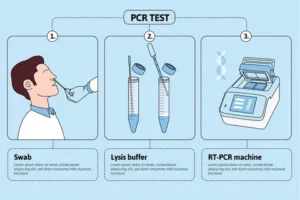
In today’s digital landscape, businesses and marketers must track and measure their digital marketing success to ensure their strategies are effective. Understanding key performance indicators (KPIs), using the right analytics tools, and continuously optimizing campaigns are crucial for achieving long-term success. This guide will provide an in-depth look at how to track and measure your digital marketing success.
Define Clear Goals and Objectives
Before tracking your digital marketing efforts, it’s essential to define clear, measurable objectives. Common goals include:
- Increasing website traffic
- Boosting lead generation
- Enhancing social media engagement
- Improving email open rates and conversions
- Growing brand awareness
- Maximizing return on investment (ROI)
Establishing SMART (Specific, Measurable, Achievable, Relevant, and Time-bound) goals will help you create a solid foundation for tracking success.
Identify Key Performance Indicators (KPIs)
KPIs are measurable values that indicate how effectively a campaign is achieving its objectives. Here are some crucial KPIs based on different marketing channels:
Website Analytics
- Traffic Volume: Total number of website visitors
- Bounce Rate: Percentage of visitors who leave without taking action
- Session Duration: Average time users spend on the website
- Pages Per Session: Number of pages viewed per visit
- Conversion Rate: Percentage of visitors completing a desired action (e.g., signing up or making a purchase)
Social Media Metrics
- Follower Growth Rate: How quickly your audience is expanding
- Engagement Rate: Likes, shares, comments, and interactions per post
- Click-Through Rate (CTR): Percentage of users clicking on links in posts
- Reach and Impressions: Number of unique users seeing your content vs. total number of times the content is displayed
Email Marketing
- Open Rate: Percentage of recipients who open the email
- Click-Through Rate (CTR): Percentage of email recipients clicking on links
- Conversion Rate: Percentage of recipients taking a desired action
- Unsubscribe Rate: Rate at which people opt out of receiving future emails
Paid Advertising (PPC)
- Cost Per Click (CPC): Amount spent per click on an ad
- Click-Through Rate (CTR): Percentage of people clicking on the ad
- Quality Score: Google’s rating of ad relevance and landing page experience
- Return on Ad Spend (ROAS): Revenue generated per dollar spent on ads
Use the Right Analytics Tools
To effectively track digital marketing performance, leverage analytics tools that provide insightful data. Some widely used tools include:
- Google Analytics: Tracks website traffic, user behavior, and conversions
- Google Search Console: Monitors search performance and SEO metrics
- SEMrush & Ahrefs: Provide SEO insights, competitor analysis, and keyword tracking
- Social Media Insights (Facebook, Instagram, LinkedIn, Twitter Analytics): Measures engagement, reach, and demographics
- Email Marketing Platforms (Mailchimp, HubSpot, ConvertKit): Tracks email campaign performance
- Google Ads & Facebook Ads Manager: Analyzes PPC campaign performance
Implement Conversion Tracking
Setting up conversion tracking allows you to measure the effectiveness of your marketing efforts. Ways to track conversions include:
- Using Google Analytics Goals to monitor completed actions (form submissions, purchases, etc.)
- Implementing UTM parameters to track campaign sources
- Using Facebook Pixel for retargeting and ad conversion measurement
- Setting up call tracking to monitor phone inquiries from campaigns
Regularly Review and Optimize Campaigns
Consistently reviewing marketing data helps identify areas for improvement. Here’s how to optimize your strategies:
- A/B Testing: Experiment with different headlines, images, and CTAs to improve performance
- Audience Segmentation: Target the right audience based on demographics and behavior
- Content Optimization: Improve SEO, update outdated information, and create engaging content
- Budget Allocation: Shift spending to high-performing channels to maximize ROI
Generate and Analyze Reports
Creating detailed reports helps measure progress and make data-driven decisions. Important aspects to include in reports:
- Campaign performance summary
- Audience insights and engagement levels
- Traffic sources and conversions
- Recommendations for future improvements
Conclusion
Tracking and measuring digital marketing success is a continuous process that requires setting goals, identifying KPIs, leveraging analytics tools, implementing conversion tracking, and optimizing campaigns based on data insights. By consistently monitoring performance and making strategic adjustments, businesses can maximize their digital marketing effectiveness and drive sustainable growth.





